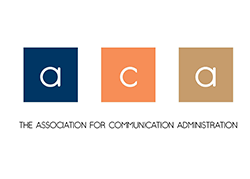Abstract
This article argues that internship directors must examine the constraints and objectives of their program and then select an appropriate supervisory style in order to be effective. Considering the many benefits associated with the internship experience, it is not surprising that over one thousand colleges and universities in the U.S. offer some type of internship program. What is surprising is that internship directors looking for suggestions on internship administration find little research devoted to developing effective administrative decisions. The relationship between the intern, the faculty coordinator, and the site supervisor may be of a helping nature whereby the faculty coordinator consults with and advises the intern with the hope of improving the intern's understanding of the communication principles operating in the internship. Some directors, on the other hand, may feel that learning is the responsibility of the student, hence the particular workplace becomes the primary locus of education through the internship.
Recommended Citation
Hinck, S. S., & Dailey, W. O. (1994). The impact of situational elements upon an internship director’s supervisory style: A model. Journal of the Association for Communication Administration, 23(1), 15–22.


